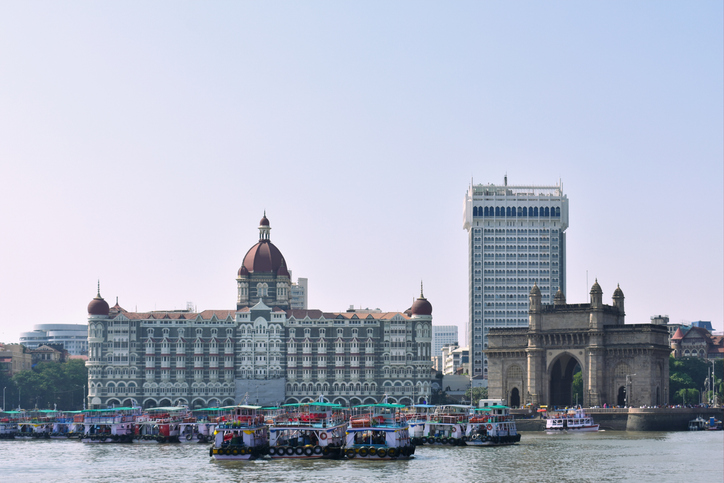Many entrepreneurs share a common dream: taking their businesses to a global stage, capturing revenue from international markets, and becoming brands recognised beyond their geographic boundaries. However, when faced with the reality of this ambition, they encounter a myriad of questions, such as where and how to start, which products and services to offer, and which channels to invest in. The sheer volume of uncertainties often keeps many businesses confined to their domestic markets.
We are excited to have Ishan Dutta and Edy Heng from our International Growth team join us to discuss global expansion. Their vast experience in various markets will definitely be helpful for those who have the ambition to dream big.
Hi Ishan and Edy, you are the gurus of international trade at the GM Business Growth Hub. Can you share your background with us, such as previous companies you have worked for and overseas markets you have been stationed in?
Edy: After graduating from the University of Southern California, I began my career at a Fortune 500 company in California, United States. I then moved to Singapore, where I spent over 14 years working for Fortune 100 companies, including SAP and Johnson & Johnson, and some innovative technology startups with business operations across Japan, China, South Korea, Australia, New Zealand, Taiwan, Hong Kong, India, Pakistan and ASEAN countries. Following that, I relocated to Japan, where I lived for six years and established my own company, conducting business in Japan and collaborating with German-based institutes.
Ishan: After graduating from a university in the UK, I attended a business school in France and began my career working for L'Oreal managing businesses in various countries for them. I then moved to Singapore and worked as regional head for a couple of multinationals, looking after the Asia Pacific region. I then started my own e-commerce business based out of Los Angeles. We grew this business from scratch into a decent sized business in the space of several years.
With so many years of experience in international trade, could you share some interesting stories about entering a new market?

Ishan: The story of L'Oreal's entry into India is rather interesting, and I was involved at the ground level and can therefore tell you about it. Essentially, we did exactly the reverse of what other foreign multinationals were doing. They were dreaming of getting a big win in the entire Indian market. As a result, they spent a fortune expanding their distribution into every nook and cranny of India. When they did so they found themselves up against established local players with unlimited spending and distribution power and a market which was not ready to change culturally and pay a premium. Being everywhere therefore did them no good.
L'Oreal did exactly the reverse. We targeted very narrow, initially going for the affluent classes only in the cities of Mumbai and Delhi. We focussed initially on fashion colour, which was then an untouched category and one which local players had no expertise in. This very focussed targeting with products and distribution allowed us to save on distribution costs, advertising and selling costs versus our competitors. It proved a winning strategy.
The lesson for us, which is still valid I believe is to target very clearly when going abroad. You will have a much better chance of success that way.
After so many years in the international arena, what are your significant observations and thoughts on the businesses in Greater Manchester to go abroad?
Edy: The decision for a business to expand internationally ultimately hinges on sustainability. It’s perfectly acceptable for a company to focus solely on the local market. However, for those seeking sustainable growth, considering international expansion is essential.
In today’s interconnected world, it’s important to recognise that foreign companies can easily bring competition to your doorstep. Instead of staying defensive, consider the numerous opportunities that are available. Companies operating in multiple markets, whether domestically or internationally, have a better chance of surviving competition due to their diverse revenue sources. Their sustainability is not dependent on a single market’s success, making them more resilient against competition and market fluctuations.

Furthermore, a company can actually benefit just by gathering information to develop their strategy for expansion abroad, as they will acquire valuable insights into international trends. This knowledge can better equip them to defend themselves against competition in their home market.
Generally, what is your number one piece of advice for businesses who would like to go global? What should they do before they take the leap of faith?
Edy: When considering international business, many people may have overlooked the importance of careful planning before committing to an overseas market and establishing a local company. Nowadays setting up a company in the target market is no longer the most critical thing to conduct business there. However, it is crucial to thoroughly analyse what your products and services offer within the international market context. As mentioned earlier, thinking strategically about operating internationally can significantly enhance your business’s success in the UK.
Ishan: My number one piece of advice is to break down any roadblock which may initially seem overwhelming into several smaller steps and tackle them one by one. Once you do this, you will find that each step becomes much easier to manage. It’s not as complicated or daunting as it may seem at first.
For example, many people find the whole process of exporting to Europe after Brexit to be an overwhelming challenge. However, work-arounds do exist. There is something called a one-stop shop which allows UK businesses to charge EU VAT and do VAT returns on behalf of end customers in Europe so that they do not face unwelcome VAT surprises at the customs clearance stage. Implementing this one-stop shop requires some accounting work and IT work. But it is feasible, and companies should definitely explore this solution.
Dream of going global for your business? Just leave your information below; Ishan and Edy will contact you to discuss an international expansion plan to help you realise your ambition.
Or you could sign up for our International Strategy Workshop on 26 February.
Get in touch
Please contact us at 0161 3593050 or query below.
Take that first step and we’ll support you with whatever you need to succeed.
Sign-up to our newsletter
Insights, news, events and opportunities straight to your inbox.